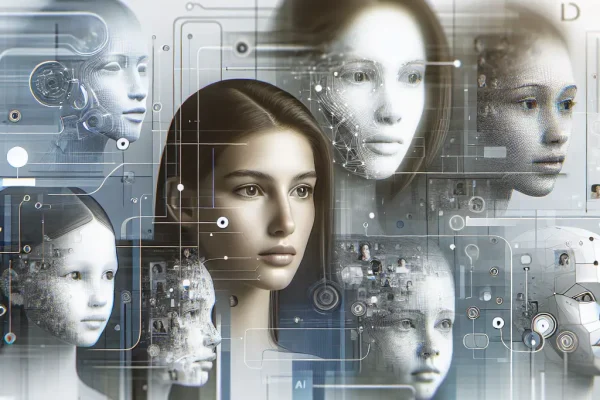Forget everything you know about smartphone AI. With the shocking debut of Apple Intelligence, Apple claims it can beat Silicon Valley’s AI giants—and keep your secrets safer than ever. Here’s what the iPhone’s biggest leap in years really means for your privacy, your daily tech habits, and the AI arms race.
The Problem: AI, Privacy, and the Tech Trust Gap
When Tim Cook stepped on stage at WWDC 2025 to reveal “Apple Intelligence,” even die-hard Apple watchers were stunned. Apple isn’t first to AI features—but it’s claiming to be the first to get them right. As CNN reported in 2024, 72% of Americans worry big tech can’t be trusted with their private data. And as OpenAI, Google, and Microsoft have raced ahead with ever-smarter—but cloud-dependent—AI, every question comes back to one word: privacy.
Until now, AI assistants like ChatGPT and Google Gemini have required constant cloud connections. Every text, search, or spoken query is whisked away to remote servers—often beyond your control or knowledge. Apple is flipping the script with on-device, encrypted intelligence. As TechCrunch put it: Apple “wants to make AI actually private—by never letting your data leave your device.”
How Does Apple Intelligence Work? Breaking Down the Tech
Apple Intelligence is a personal AI system running natively on iPhone, iPad, and Mac (all with Apple silicon chips). Unlike competitors, Apple’s AI features process your data—messages, calendars, emails—locally. It only reaches out to Apple’s “Private Cloud Compute” when necessary, and even then, Apple promises end-to-end encryption and zero data retention on its servers (see Wired).
The result: Smarter features in iOS 18, without sacrificing privacy. It sets the stage for a new breed of AI-powered apps native to Apple’s ecosystem.
Why It Matters: From Your Wallet to the World
Apple Intelligence isn’t just about snappier autocorrect. As AI shapes industries, workplaces, and geopolitics, privacy is becoming a sticking point.
- Jobs & Trust: The fear of job-erasing AI is real—by 2030, 40% of current jobs may be automated (OECD, 2024). But users want power without the privacy cost.
- Economic Stakes: Mobile privacy is critical for billions. A 2025 Forrester survey saw 60% of consumers say they’d pay more for devices that protect their personal data.
- Geopolitical Impact: Nations are battling over AI leadership and regulation. A leak-proof mobile OS could boost Apple’s global influence while avoiding regulatory backlash.
In the words of Financial Times, Apple’s entry marks “a new front in the AI race—balancing raw capability with trust.” Will users—and governments—choose Apple’s vision of AI, or rivals’?
Expert Insights & Hard Data: Is Apple Actually Ahead?
How radical is this shift? Here’s what the authorities are saying about Apple’s new approach:
“Apple Intelligence represents a strategic move: If everyone else wants cloud AI, Apple wants to win with privacy.” — TechCrunch
- On-device focus: “90% of AI queries processed on iPhone will be handled locally,” according to Apple’s SVP of Software Engineering, Craig Federighi (WWDC keynote, 2025).
- AI features in iOS 18: Context-aware notifications, AI-powered writing tools, smart photo search, advanced call screening, and automatic email summaries. And that’s just the start (see TechCrunch).
- Siri upgrade with artificial intelligence: Siri can now understand natural multi-step requests (“Text Mom I’ll be late, then remind me to call her later and find a good Thai place nearby”). Siri is contextually aware and can take actions inside apps (Wired).
Your critical information never needs to leave your iPhone: notes, messages, photos are encrypted and processed via Apple AI privacy encryption protocols. Wired describes this as “the most ambitious privacy-first AI system of any major tech platform.”
Table: Apple vs Google AI Comparison (2025)
| Feature | Apple Intelligence (iOS 18) | Google Gemini (Pixel/Android) |
|---|---|---|
| AI Processing Location | On-device (with optional, encrypted cloud) | Mainly cloud-based |
| Privacy Protection | Device encryption, zero data retention | Cloud privacy controls, but data often analyzed remotely |
| App Integration | Deep OS-level integration in iOS 18, Messages, Mail, Photos | Primarily Google apps & services |
| Siri/Assistant AI | Siri 2.0 with conversational, context-aware requests | Google Assistant Gemini, multi-modal but less on-device |
| Release Date | Beta June 2025, full rollout September 2025 | Rolling updates throughout 2024-2025 |
Infographic Suggestion:
- Title: “Apple Intelligence vs. Google Gemini: Privacy Showdown”
- Visual: Side-by-side comparison with device icons, data flow arrows (on-device/secure vs. cloud/external), privacy shields, Siri vs. Gemini logos.
Future Outlook: Risks, Rewards & What Comes Next
Where will Apple Intelligence take us by 2030?
- Opportunities: More personalized, context-aware experiences without privacy tradeoffs. Businesses could build Apple Intelligence powered apps with never-before-seen capabilities. Apple may become the global model for “ethical AI.”
- Risks: App developers must retool for on-device AI. Apple’s Private Cloud Compute will face constant scrutiny—hackers, governments, and privacy watchdogs will test its claims. And there’s a chance that Apple’s walled garden could limit innovation elsewhere.
- Predictions: Expect rapid updates: Apple Intelligence features will expand with each iOS/MacOS update. Rivals like Google and Samsung are already hinting at more on-device AI by 2026.
As Wired’s Lauren Goode writes, “If Apple Intelligence works as promised, it could finally make privacy a selling point in AI—not a casualty.” (Wired).
Case Study: What Apps Use Apple Intelligence?
The AI features in iOS 18 are showing up everywhere. Some early adopters include:
- Messages & Mail: Auto-writing tools, quick summaries, and tone adjustment—confident for work, casual for friends.
- Photos: AI tagging, instant visual search (“Show all photos with golden retrievers at the beach”), object removal, and organizing.
- Notes: Summarize meetings, extract action items, transcribe and clean up voice memos.
- Calendar: Smart time suggestions, automatic event & travel detection from emails or messages.
- Third-party apps: Apple has launched new APIs—so expect powerful AI inside health, productivity, and creative apps by fall 2025.
Apple Intelligence release date: The beta starts June 2025, with a phased public rollout alongside iOS 18 and new iPhones in September, according to Financial Times.
Related Links
FAQ: Apple Intelligence, Privacy, and iOS AI Features
How does Apple Intelligence work?
Apple Intelligence processes your data locally on your device using Apple silicon. Only when necessary does it use Apple’s encrypted cloud servers—without storing or analyzing your personal info remotely (Wired).
What apps use Apple Intelligence in iOS 18?
Core apps like Messages, Mail, Photos, Calendar, and Notes all use Apple Intelligence. Apple is also opening APIs for third-party developers to integrate advanced AI features.
What is the impact of AI on smartphone privacy?
Apple claims its approach sets a new standard: user data stays private, on-device, reducing exposure to hacks or government data requests. This addresses growing privacy concerns from consumers and regulators.
How does Apple’s AI compare to Google’s and others?
Apple Intelligence is on-device first, while Google’s Gemini and Microsoft’s Copilot rely more on the cloud. Apple’s edge: privacy. Google’s edge: more AI features, but at the cost of more data leaving your hands.
When is the Apple Intelligence release date?
Apple Intelligence launches for developers in June 2025, with public rollout in September alongside iOS 18 and new iPhones (TechCrunch).
Conclusion: Apple’s AI Gamble—Will the World Buy In?
Apple Intelligence AI launch may be the boldest move since the iPhone itself. It bets big on privacy—a value that’s been missed in Silicon Valley’s race for smarter, faster, bigger AI. If it works, Apple could set the global standard for where (and how) AI should live in our lives.
Will a smarter, more private AI assistant lure you back to Apple? Share this article and join the debate: Is this the dawn of ethical AI, or just more hype from the world’s richest tech company?


